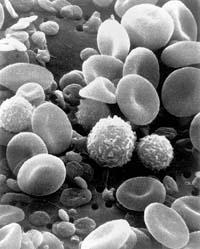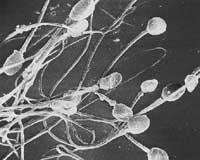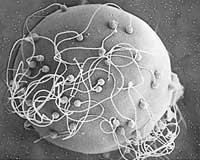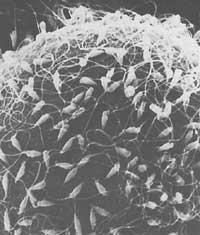A Rhesus protein protects the blood from acidification
2009/01/01 Elhuyar Zientzia Iturria: Elhuyar aldizkaria

Researchers at the Free University of Belgium have shown that a protein from the Rhesus family of proteins carries ammonia from kidney cells to urine. It is called Rhcg, which allows the pH of the blood to not change.
The blood is slightly alkaline (pH 7,4). PH changes, although small, can have very serious consequences. Therefore, it is very important to have a balance containment system. When the proteins are removed, acids are formed, and the researchers already knew that the molecules that acidify the blood are eliminated through the work of the kidneys. They have now taken a step further and have shown that Rhcg protein is essential.
It is an important discovery, as it allows to cure some diseases of the kidney. In addition, they have shown that in the testicles, in addition to the kidneys, the Rhcg protein does a similar job. In fact, it contributes to the sperm having a proper environment for their proper development. Thus, researchers believe that this protein may be behind some cases of male sterility.

Gai honi buruzko eduki gehiago
Elhuyarrek garatutako teknologia






